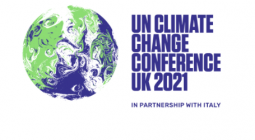COP President Daily Media Statement and Latest Announcements – 10 November

- As one of the Glasgow Breakthroughs at the World Leader Summit, 30 countries have agreed to work together to make zero emission vehicles the new normal by making them accessible, affordable, and sustainable in all regions by 2030 or sooner.
- A number of emerging markets are agreeing to accelerate the transition to ZEVs in their markets (including India, Rwanda, Kenya)
- Launch of a new World Bank trust fund that will mobilise $200 million over the next 10 years to decarbonise road transport in emerging markets and developing economies.
- This goal is guiding the Zero Emission Vehicle Transition Council (ZEVTC), which will today met with distinguished representatives, including experts on the transition in Emerging Markets and Developing Economies (EMDEs), to discuss how international collaboration can support a global transition. The ZEVTC will launch its first annual Action Plan, which sets out areas for sustained international cooperation to accelerate the transition during 2022. The US has today joined the UK as a co-chair of the ZEVTC.
- Nineteen governments have also stated their intent to support the establishment of ‘green shipping corridors’ – zero-emission shipping routes between two ports. This will involve deploying zero-emission vessel technologies and putting alternative fuel and charging infrastructure in place in ports to allow for zero emission shipping on key routes across the globe.
- The UK has pledged to shift to clean trucks by committing to end the sale of most new diesel trucks between 2035 and 2040.
Press conference opening statement from COP President Alok Sharma, 10 November:
As you’re aware, the first draft of the cover decision texts were published this morning.
And earlier this afternoon I hosted a stocktaking plenary, at which the Ministers I have requested to co-facilitate negotiations on some of the key outstanding issues presented their views on progress.
The science and citizens across the world demand that we are unapologetically high ambitions as a Presidency and the cover decision texts, in our opinion are high ambition and balanced.
Of course, texts will change and evolve as countries begin to engage on the details, but our shared commitment to accelerate action this decade must be unwavering.
And science must be our compass, and this should spur us on to the highest ambition consensus we can achieve.
I also want to be clear.
We are not seeking to reopen the Paris Agreement.
The Paris Agreement clearly sets out the temperature goal. Well below 2 degrees and pursuing efforts to 1.5 degrees.
That is why our overarching goal of “keeping 1.5 degrees within reach” has been our lodestar.
We seek to chart a path that is balanced across the three pillars of the Paris Agreement: finance, adaptation and mitigation.
I will continue to champion finance, as I have done throughout my time in this role, and I have asked developed countries to be flexible in their positions.
The task of finalising all texts, including the cover decisions, will be challenging.
But we all know what is at risk if we do not reach an ambitious outcome.
Climate vulnerable countries on the front line of the climate crisis will continue to bear the brunt.
Before it engulfs us all.
The text on adaptation aims to build our shared capacity to act.
Climate change is affecting all of us.
Needs are growing and we must respond.
We have also included a section on loss and damage.
This is a first for this process and I hope that countries will engage constructively.
Discussions on the Santiago Network in Glasgow suggest that Parties will engage in the right spirit.
On mitigation, we know we have made progress on the journey to Glasgow, but the science shows that we can and must go further.
The text gives countries the opportunity to agree how they will accelerate action and return to the table with stronger commitments.
In addition to the cover decision, texts are still evolving on the rulebook items and finance.
On Article 6 the text has narrowed and the choices are clear.
It will be a matter of political will now to close this outcome.
On Transparency, negotiators are moving through the technical work.
Transparency underpins the Paris Agreement and is absolutely crucial to delivering on our commitments.
On common timeframes we are down to two options.
And across the board, Ministers are identifying landing grounds.
On finance, there remains a lot of work to do but we have seen positive announcements.
Such as the $350m in contributions to the adaptation fund and $413m to the LDC Fund.
I hope this supports a good atmosphere in negotiations.
Let me talk a little bit about the process going forward,
My head negotiator, Archie Young will convene a Heads of Delegations meeting this afternoon to take stock of parties detailed views on draft texts.
My team and I then intend to review progress across all issues from 7pm this evening.
I will meet with co-facilitating Ministers before ministerial and technical co-facilitators publish what I expect to be near-final texts overnight.
I will then convene all groups, parties and observers again at 11am tomorrow in plenary to hear views.
As a presidency we are fully committed to transparency and openness and I have invited parties to reach out to me if they wish to meet outside the formal sessions.
As I told the plenary earlier, we have seen a spirit of cooperation and consensus at the summit thus far.
It is a can-do spirit that I hope all parties will want to continue to foster over the coming critical days.
I still have the intention for us to be able to close COP 26 at the end of Friday.
Everyone must come armed with the clarity of compromise. We all know what is at stake in these negotiations and indeed the urgency of our task.
In very human terms, what we agree in Glasgow will set the tone of the future for our children and grandchildren and I know that no world leader or country will want to fail them.
10 November 2021
COP26




